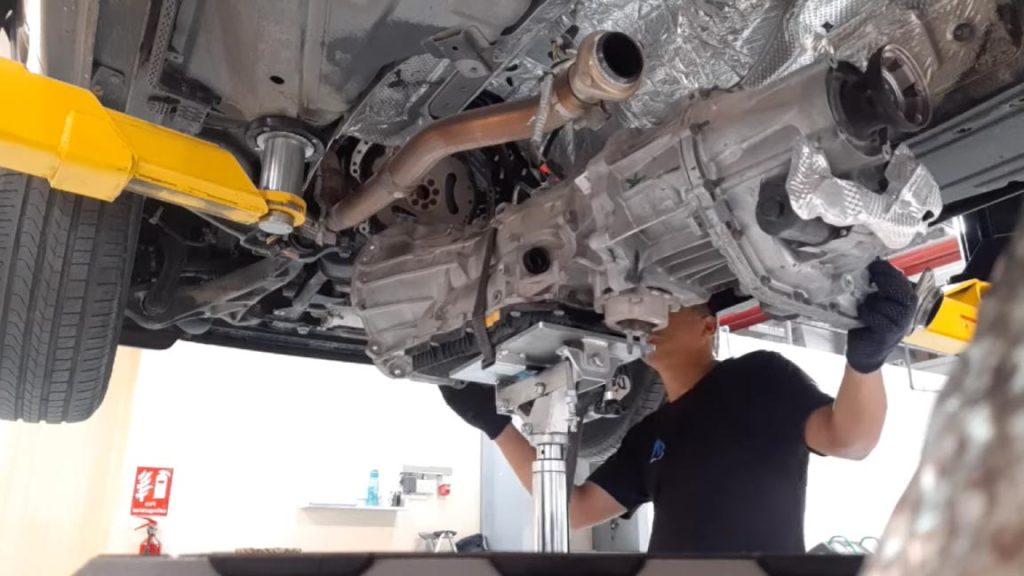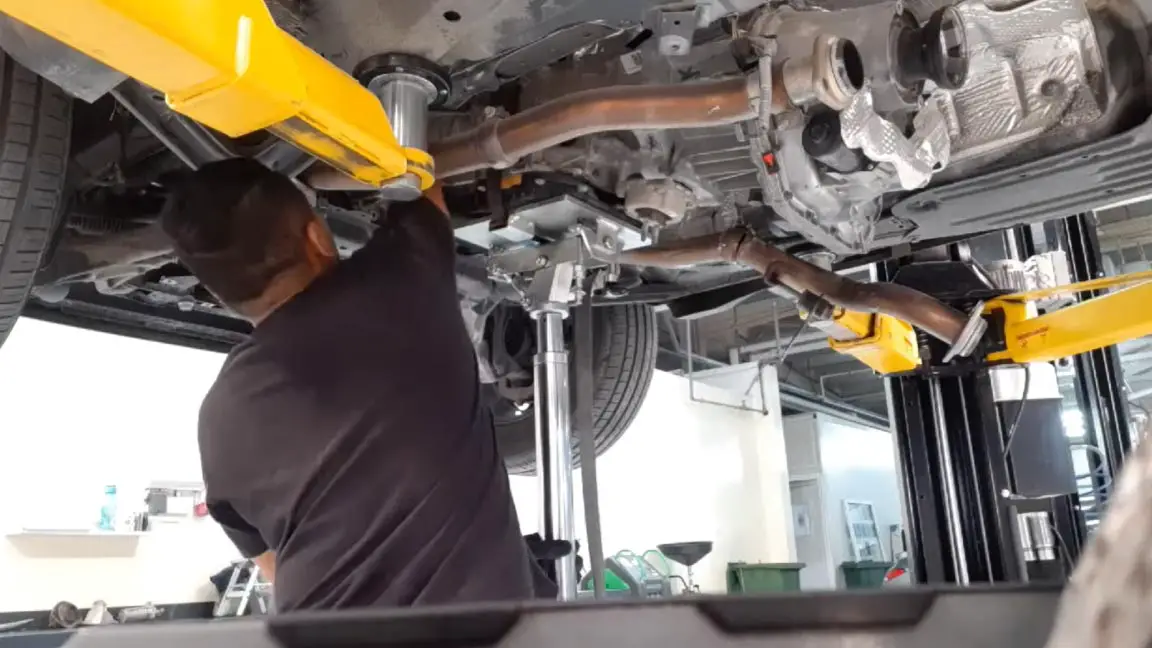The Jeep Grand Cherokee stands as an icon of rugged elegance in SUVs, offering a blend of performance, comfort, and versatility.
However, amid its many virtues, specific model years have been plagued by a persistent concern: transmission problems. These issues have garnered attention from owners, automotive enthusiasts, and regulatory bodies alike.
In this article, I will delve into the world of Jeep Grand Cherokee transmission problems, uncovering the models affected, the nature of the issues, their potential impact, and the step-by-step guide that can be taken to address and prevent them. Without further let’s start.
Transmission Problem: Common Signs and Symptoms

Before we explore the potential Jeep Grand Cherokee transmission problems in your Jeep Grand Cherokee, it’s important to be aware of the telltale signs that could indicate a transmission issue. Recognizing these symptoms early can help you take prompt action and prevent further damage to your vehicle: Here are ten potential transmission problems that could occur in a Jeep Grand Cherokee:
1. Delayed or Harsh Shifting
Shifting delays or abrupt gear changes can lead to an uncomfortable driving experience and potential stress on transmission components.
2. Transmission Fluid Leaks
Leaking transmission fluid can result in low fluid levels, inadequate lubrication, and potential damage to the transmission. Fluid leaks can also cause environmental concerns and driveway stains.
3. Slipping Transmission
A slipping transmission might unexpectedly shift out of gear or struggle to stay in the selected gear, causing decreased acceleration, power loss, and potential safety risks.
4. Check Engine Light for Transmission Codes
When the check engine light illuminates due to transmission-related error codes, it indicates issues such as sensor malfunctions or more serious internal transmission problems that require immediate attention.
5. Torque Converter Malfunctions
Problems with the torque converter, responsible for transmitting power from the engine to the transmission, can lead to issues like poor acceleration, stalling, or lack of power.
6. Transmission Overheating
Overheating can lead to reduced transmission efficiency, increased wear, and potential damage to internal components. It’s often caused by excessive towing or inadequate cooling.
7. Transmission Noise
Unusual noises such as clunking, whining, or grinding from the transmission can indicate mechanical problems that warrant inspection and repair.
8. Electronic Control Unit (ECU) Malfunctions
Failures in the transmission’s electronic control unit can lead to erratic shifting, decreased fuel efficiency, and compromised overall performance.
9. Software or Firmware Glitches:
Faulty software or firmware can cause of Jeep Grand Cherokee transmission problems, including shifting irregularities and performance inconsistencies that require reprogramming or updates.
10. Loss of Gears or Noises in Neutral
Experiencing a loss of gears or hearing unusual noises while the transmission is in neutral can point to internal damage, requiring professional diagnosis and repair.
Solving The Jeep Grand Cherokee Transmission Problems
Understanding the potential problems is just the first step; knowing how to address them is equally important. Here are some solutions and steps you can take to tackle transmission issues in your Jeep Grand Cherokee:
1. Delayed or Harsh Shifting
Ensure the transmission fluid is at the correct level and replace it if necessary. If the problem persists, have the transmission professionally inspected for mechanical issues.
2. Transmission Fluid Leaks
Identify the source of the leak and repair it. Replace the lost transmission fluid with the appropriate type and amount.
3. Slipping Transmission
Check the transmission fluid level and condition. If the fluid is good, consult a professional to diagnose and repair the underlying issue, which could involve worn clutches or other internal components.
4. Check Engine Light for Transmission Codes
Use a diagnostic tool to retrieve error codes and identify the specific problem. Seek professional help to address the root cause.
5. Torque Converter Malfunctions
A malfunctioning torque converter might require replacement. Consult a mechanic to accurately diagnose the issue and determine if replacement is necessary.
6. Transmission Overheating
Ensure proper transmission cooling, especially if towing frequently. Address any issues with cooling lines, radiators, or coolers to prevent overheating.
7. Transmission Noise
Noise could result from worn components. Consult a professional to diagnose the source and perform necessary repairs or replacements.
8. Electronic Control Unit (ECU) Malfunctions
Have the ECU checked for errors and malfunctions. In some cases, reprogramming or replacement might be necessary.
9. Software or Firmware Glitches
Update or reprogram the software or firmware through a dealer or professional mechanic to resolve glitches affecting transmission performance.
10. Loss of Gears or Noises in Neutral
Seek immediate professional help to diagnose internal damage. Depending on the issue, repairs might involve replacing damaged components or even rebuilding the transmission.
Preventing Transmission Problems: Proactive Measures
While it’s impossible to eliminate the risk of transmission problems completely, there are proactive measures you can take to minimize the likelihood of encountering issues:
- Follow Maintenance Schedule: Adhering to your Jeep Grand Cherokee’s recommended maintenance schedule, including regular fluid changes, can significantly prolong the life of your transmission.
- Avoid Overloading: Excessive weight or towing capacity can strain the transmission, leading to premature wear. Always adhere to the manufacturer’s towing guidelines.
- Smooth Driving Habits: Gentle acceleration and smooth gear transitions can reduce stress on the transmission and contribute to its longevity.
Service Bulletins Related to the Transmission
In the realm of maintaining optimal performance, the 2015 Jeep Grand Cherokee and its counterparts have encountered a series of service bulletins issued by Jeep to address transmission-related concerns. These bulletins serve as a proactive approach to rectifying complaints and issues, with a focus on ensuring a seamless driving experience for Grand Cherokee owners. Here’s a closer look at the service bulletins that have come into play, showcasing Jeep’s commitment to resolving transmission-related matters.
Addressing the Emission Recall: W41 Notification
Jeep’s dedication to ensuring vehicle compliance and performance led to the issuance of a Customer Satisfaction Notification for the 2014 through 2016 Jeep Grand Cherokee – W41. This notification specifically applies to vehicles equipped with a 3.0L diesel engine, encompassing those that had undergone an emission recall earlier.
The purpose of this notification was to address the functionality of the self-cleaning mode within the engine. A crucial step to uphold emission standards, it required an upgrade to the Powertrain Control Module (PCM) software. By facilitating a seamless self-cleaning process, Jeep aimed to maintain optimal engine performance and emission control.
Enhancing Powertrain Control Module Software
In May of 2016, a Grand Cherokee service bulletin was released to cater to owners with a 3.0L transmission. This update centered around upgrading the Powertrain Control Module (PCM) software to its latest iteration. The impetus behind this update emerged from consumer feedback concerning a distinctive buzzing sound originating from the engine.
Furthermore, this bulletin sought to tackle a separate issue raised by drivers—the sensation of the vehicle exhibiting a bucking or jolting motion upon depressing the gas pedal. Through the comprehensive software update, Jeep aimed to alleviate these concerns and ensure a smoother and more enjoyable driving experience.
These service bulletins underscore Jeep’s commitment to proactive problem-solving and customer satisfaction. By addressing transmission-related matters promptly and effectively, Jeep showcases its dedication to maintaining the performance and driving pleasure that Grand Cherokee owners expect.
2015 Jeep Grand Cherokee Transmission Problems
Jeep Grand Cherokee transmission problems have been a consistent concern among Jeep Grand Cherokee owners, particularly in the 2015 model year. Drivers have reported a range of problems to the National Highway Traffic Safety Administration (NHTSA), drawing attention to significant challenges faced by many. Let’s delve into these concerns and their impact on the 2015 Grand Cherokee:
Persistent Transmission Problems
The 2015 Jeep Grand Cherokee has garnered attention for transmission problems that stand out even in comparison to other model years. Drivers have voiced frustration over encountering issues shortly after purchasing new vehicles. This includes instances where the transmission needed replacement almost immediately, creating significant inconvenience and expense.
Recurrence Across Model Years
Troubles with the transmission in the 2015 model year are not isolated. Drivers have reported encountering similar problems in the 2011, 2012, and 2014 models. This highlights an ongoing concern that appears to persist across several iterations of the Grand Cherokee.
Significant Issues in the 2015 Model
Among the reported concerns, improper or poor transmission shifting performance takes center stage in the 2015 Grand Cherokee. Additionally, drivers have raised alarms about the unreliability of electronic shifting mechanisms. These problems are surfacing in vehicles with relatively low mileage, typically around 10,000 to 12,000 miles.
Challenges with Repairs
Drivers seeking solutions for these issues have faced difficulties in finding effective remedies. Some have turned to technicians for guidance, only to be advised that the best course of action is to replace the entire transmission. While potentially resolving the problem, this solution comes with a hefty price tag, leaving owners grappling with significant repair expenses.
Reoccurrence of Problems
An added layer of frustration comes from instances where drivers have invested in transmission replacements, only to find that the problems reemerge after the repairs. This not only compounds financial burdens but also underscores the persistence of the underlying transmission concerns.
In summary, the 2015 Jeep Grand Cherokee has encountered substantial transmission problems that surpass issues reported in other model years. Reports of early transmission replacements, challenges in addressing shifting period.
Frequently Asked Questions about Jeep Grand Cherokee Transmission Problems
What Are Common Transmission Problems In Jeep Grand Cherokee Vehicles?
Common transmission problems in Jeep Grand Cherokees include issues like delayed or rough shifting, transmission slipping, strange noises during gear changes, and transmission fluid leaks.
Are Transmission Problems Prevalent In The Jeep Grand Cherokee?
Yes, transmission problems have been reported in various model years of the Jeep Grand Cherokee, with some years experiencing more significant issues than others.
Which Model Years Of The Jeep Grand Cherokee Have The Most Notable Transmission Problems?
Model years such as 2015, 2014, 2012, and 2011 have been reported to have significant transmission problems by drivers and have drawn attention from organizations like the National Highway Traffic Safety Administration (NHTSA).
What Specific Transmission Issues Are Associated With The 2015 Jeep Grand Cherokee?
The 2015 model year has been highlighted for problems related to improper or poor transmission shifting performance and unreliable electronic shifting. Drivers have reported encountering these issues at relatively low mileage, typically around 10,000 to 12,000 miles.
What Steps Should I Take If I Experience Transmission Problems In My Jeep Grand Cherokee?
If you notice any transmission issues, it’s advisable to take your vehicle to a qualified mechanic for a thorough diagnosis. They can assess the problem, identify the underlying cause, and recommend appropriate repairs.
Final Touch
Your Jeep Grand Cherokee transmission problems is a complex and integral component of your vehicle. By staying vigilant for signs of transmission problems, following a regular maintenance routine, and seeking professional help when needed, you can ensure that your Jeep delivers the reliable performance you expect.
Remember, addressing transmission problems promptly can save you both time and money in the long run. If you’re experiencing persistent issues, don’t hesitate to consult a certified mechanic who specializes in Jeep vehicles.

Wow! Thank you! I permanently needed to write on my blog something like that. Can I take a portion of your post to my website?
Thank you. Please when use some portion of my content, credit the site url to your site.
Hello there! Would you mind if I share your blog with my twitter group? There’s a lot of people that I think would really enjoy your content. Please let me know. Thank you
Valuable information. Lucky me I found your site by accident, and I am shocked why this accident did not happened earlier! I bookmarked it.